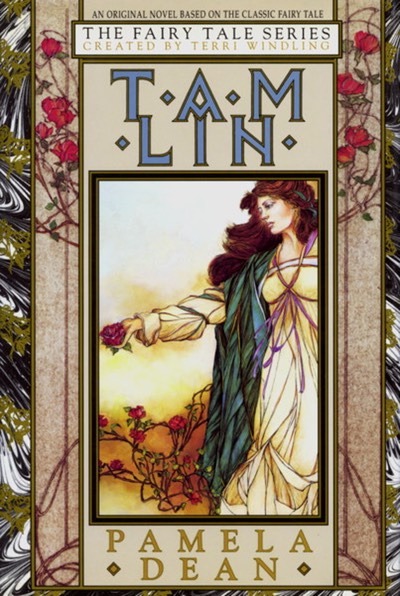In A Readers Guide to the Roman de la Rose, Maxwell Luria writes:
“…[Harry Robbins’ translation] is freer than most scholarly readers would prefer, and is inadequate for those who wish to get as close to the original as possible.”
Luria later writes:
“With the publication of Charles Dahlberg’s prose translation, we have at last an accurate, literal version of the poem. The absence of verse is more than compensated by the literal precision and fluency of the translation. The long introduction, extensive notes, and copious reproduction of manuscript illustrations add to the utility of the volume. Dahlberg’s translation is, therefore, now the English translation of preference for serious students and readers.”
Now, as for me, I generally prefer verse translations of verse originals. However, in this case, I prefer Dahlberg’s translation; it does have a poetic sensibility without being stilted as Robbins’ is. But here, I’ve provided the same section from both translations; see which you like.
The romance of the Rose, the Dahlberg translation
The Dream of Love
The Garden, The Fountain, and the Rose
MANY men say that there is nothing in dreams but fables and lies, but one may have dreams which are not deceitful, whose import becomes quite clear afterward. We may take as witness an author named Macrobius, who did not take dreams as trifles, for he wrote of the vision which came to King Scipio. Whoever thinks or says that to believe in a dream’s coming true is folly and stupidity may, if he wishes, think me a fool; but, for my part, I am convinced that a dream signifies the good and evil that come to men, for most men at night dream many things in a hidden way which may afterward be seen openly.
In the twentieth year of my life, at the time when Love exacts his tribute from young people, I lay down one night, as usual, and slept very soundly. During my sleep I saw a very beautiful and pleasing dream; but in this dream was nothing that did not happen almost as the dream told it. Now I wish to tell this dream in rhyme, the more to make your hearts rejoice, since Love both begs and commands me to do so. And if anyone asks what I wish the romance to be called, which I begin here, it is the Romance of the Rose, in which the whole art of love is contained. Its matter is good and new; and God grant that she for whom I have undertaken it may receive it with grace. It is she who is so precious and so worthy to be loved that she should be called Rose.
Roman de la Rose, the Harry Robbins translation
1. The Poet dreams a dream
MANY a man holds dreams to be but lies,
All fabulous; but there have been some dreams
No whit deceptive, as was later found.
Well might one cite Macrobius, who wrote
The story of the Dream of Scipio,
And was assured that dreams are ofttimes true.
But, if someone should wish to say or think
’Tis fond and foolish to believe that dreams
Foretell the future, he may call me fool.
Now, as for me, I have full confidence
That visions are significant to man
Of good and evil. Many dream at night
Obscure forecasts of imminent events.
When I the age of twenty had attained—
The age when Love controls a young man’s heart—
As I was wont, one night I went to bed
And soundly slept. But then there came a dream
Which much delighted me, it was so sweet.
No such thing which in that dream appeared
Has failed to find fulfillment in my life,
With which the vision well may be compared.
Now I’ll recount this dream in verse, to make
Your hearts more gay, as Love commands and wills;
And if man or maid shall ever ask
By what name I would christen the romance
Which now I start, I will this answer make:
“The Romance of the Rose it is, and it enfolds
Within its compass all the Art of Love.”
The subject is both good and new. God grant
That she for whom I write with favor look
Upon my work, for she so worthy is
Of love that well may she be called the Rose.
Citations
TITLE: A reader’s guide to the Roman de la Rose / Maxwell Luria.
AUTHOR: Luria, Maxwell, 1932-
PUBLISHER: Hamden, Conn. : Archon Books, 1982.
DESCRIPTN: xii, 282 p. ; 24 cm.
BIBLIOG: Includes bibliographies and index.
SUBJECT: Roman de la Rose.
Quotes from pages 24-25.
TITLE: The romance of the Rose / by Guillaume de Lorris and Jean
AUTHOR: Guillaume, de Lorris, fl. 1230.
TITLE: The romance of the Rose / by Guillaume de Lorris and Jean de Meun. Translated by Charles Dahlberg.
PUBLISHER: Princeton, N.J. : Princeton University Press, 1971.
DESCRIPTN: xv, 450 p. : 64 ill. ; 25 cm.
BIBLIOG: Bibliography: p. [429]-438.
Quotes from page 31.
TITLE: The romance of the Rose / by Guillaume de Lorris and Jean de Meun. Translated into English verse by Harry W. Robbins.
Edited and with an introd., by Charles W. Dunn.
EDITION: [1st ed.]
PUBLISHER: New York : Dutton, 1962.
DESCRIPTN: xxxiii, 472 p. : plates ; 20 cm.
BIBLIOG: Bibliography: p. xxxi-xxxiii.
Quotes from pages 3-4.



